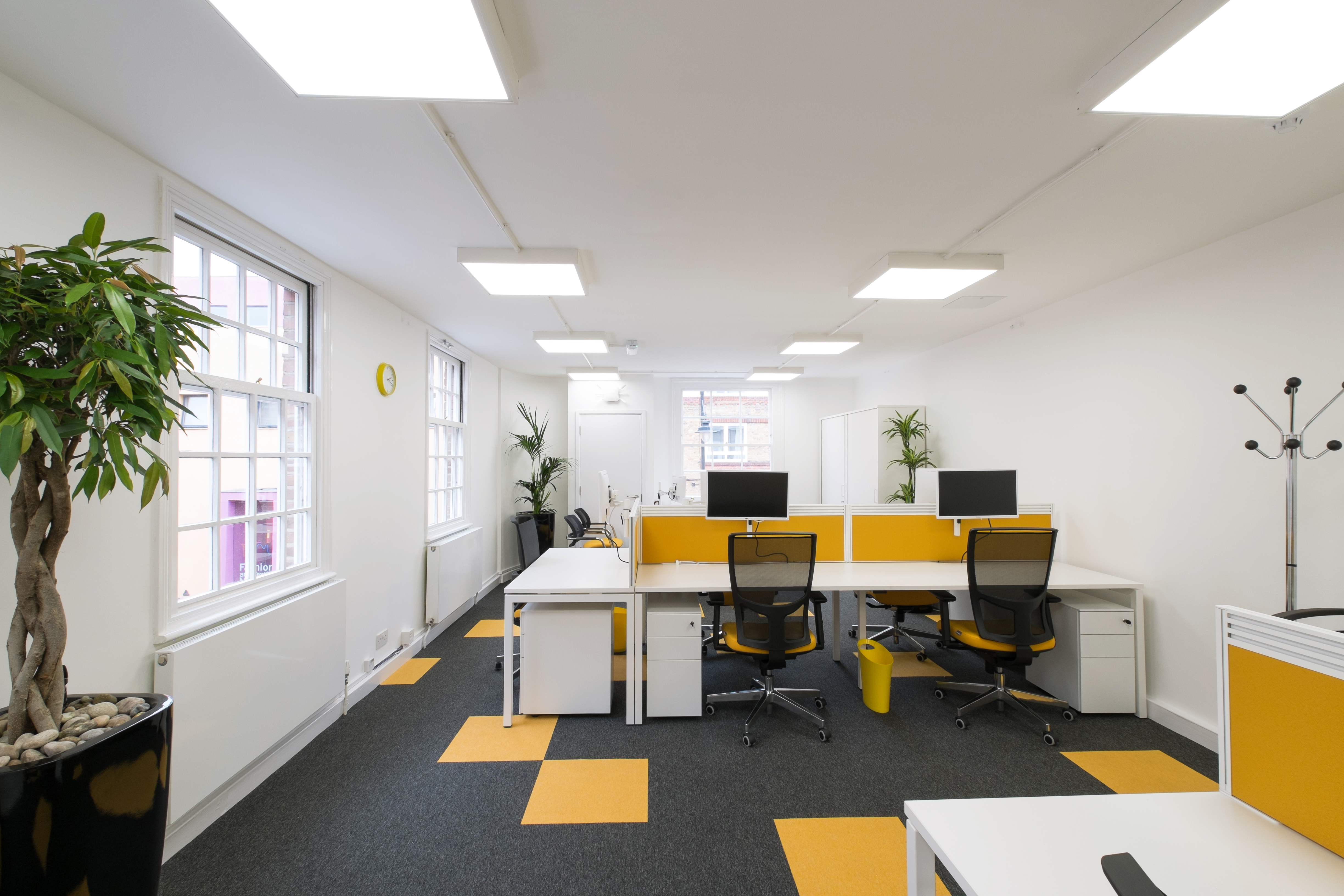
February, 2018
Distracting noise from conversations, feet and furniture can all make for an unproductive environment. But there are ways to avoid putting your foot in it by considering the impact of reflective and absorbent materials.
Flooring choices for back office or administration areas are generally made on appearance and functionality. The sales office in a building housing an engineering firm may have a simple domestic carpeted floor to separate this space aesthetically from the workshop area. However, flooring can’t decide who stands on it. So the engineer who wanders in may get a telling off from the office manager and be directed to the cleaning materials. In this case, cheaper carpeting was a poor choice. It succeeded in defining the administrative area, but failed to provide a practical solution to a mixed environment, as it was so easily damaged. Instead, a harder wearing commercial carpet tile would be more easy to clean and maintain its appearance long-term. It also doesn’t have to be an compromise, hard-wearing commercial carpet tiles can be inexpensive and still have strong designs. Duraflor Progression is probably one of the company’s most popular ranges for just those reasons. There are however other considerations when deciding on the best flooring for a busy administration area.
Considering reflective and absorbent surfaces.
The acoustic properties of carpet are commonly known. Carpet provides a deadening effect in a room, as sound waves are either absorbed or reflected by any surface. Ceilings and walls are generally hard surfaces and so reflect sound. If the floor is not carpeted the noise level in the room will be more apparent; the waves of reflected sound in the room will have more energy and so the room will appear to be noisier.
Hard flooring can still be a good choice.
The practical advantages of a hard floor in a commercial environment are apparent. A hard floor is often easier to clean, more hygienic and can be easier to work on. Vinyl is available in lots of different finishes including wood and stone finishes, and is a very durable covering for areas with heavy wear. However, if sound is an important consideration, but vinyl is the finish that is desired, it is worth remembering that you can use other surfaces to absorb and reduce sound, such as soft furnishings and wall and ceiling finishes. You can also use a looselay vinyl such as Duraflor Axis, which will give a better acoustic performance than a standard vinyl.
Nice and quiet.
A quarter of injuries reported by employees are related to noise in the workplace. A quieter workplace is less stressful and more productive. It is worth considering when designing a busy back-office what can be done in terms of not only the flooring but all the materials used, how best to minimise unnecessary sound and create a productive environment.